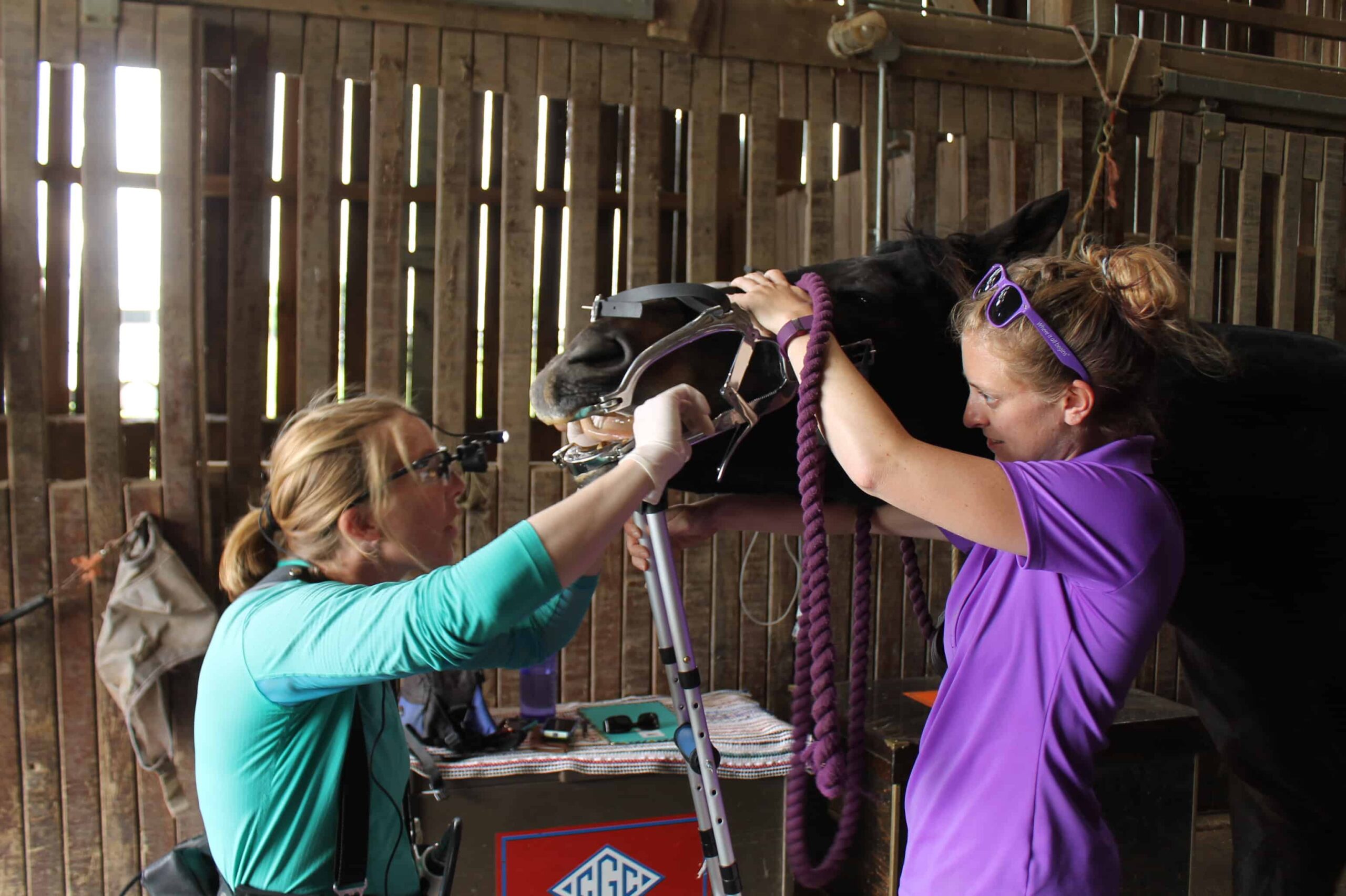[ad_1]

Q.I’ve a Morgan mare who, I feel, might need one thing flawed along with her tooth. What ought to I anticipate from a dental examination for my horse?
—Gail, by way of e-mail
A.Dental examinations can range from a superficial examination to determine main abnormalities solely to an in depth examination that hopefully will reveal the smallest dental downside. The age and use of the horse will affect the kind of examination carried out.
Some practitioners’ exams encompass flushing the mouth to take away feed and hay, a visible examination, and probably a guide examination. This sort of examination may determine many issues, particularly if the horse is amenable. Nevertheless, it has the potential to overlook issues, particularly in the back of the mouth.
As such, it’s clever to make use of a veterinarian that makes use of a full-mouth speculum for dental exams, which permits her or him to visualise and palpate all elements of the horse’s cheek tooth. Most practitioners sedate horses earlier than a speculum examination.
Who Wants Dental Exams?
New child foals needs to be examined to see if there may be correct alignment of the incisors (parrot-mouthed or sow-mouthed) or congenital defects of the lips or palate. Procedures that assist in correcting malalignment is perhaps out there.
All horses going into or already in coaching ought to have dental examinations (no less than yearly) to permit the identification and correction of dental issues comparable to sharp enamel factors and the presence of wolf tooth.
Retired and/or senior horse additionally require dental examinations and remedy. The latter group may require extra frequent analysis and remedy than youthful horses (typically each six months) as older horses are in danger for plenty of dental points.
What Issues May Your Vet Discover?
As talked about earlier than, sharp enamel factors will trigger discomfort as a bit or noseband may push the cheeks into the sharp factors on the surface of the higher cheek tooth. And, not all wolf tooth trigger issues, however no wolf tooth ever helped the horse, and a few do trigger issues. So, most wolf tooth are extracted.
Different issues that needs to be recognized embody retained deciduous incisors and premolars (caps), tall/lengthy (dominant) tooth, hooks, ramps, beaks, and unlevel chewing surfaces entrance to again. The chewing floor of the cheek tooth usually slopes 10-15% back and forth.
Contaminated or diseased tooth do happen, though they’re uncommon. They’re indicated by facial or mandibular swellings, draining tracts, gradual consuming, holding the pinnacle to the aspect, and unhealthy odor of the mouth. If there are indicators of an contaminated tooth, radiographic examination in all probability is indicated.
The proprietor ought to anticipate to be advised and/or proven what issues/abnormalities the veterinarian identifies and what impact these abnormalities might need on consuming, efficiency, and long-term dental well being. The proprietor needs to be given an estimate of the skilled charges for any indicated corrective procedures. If the corrective procedures are past the examiner’s experience, data, or instrumentation, the proprietor ought to anticipate to be referred to a specialist.
The Backside Line
Dental examinations are essential within the well being administration of the horse and needs to be carried out frequently. This is perhaps on a six to 12 month foundation as indicated by the horse’s age, use, anticipated degree of efficiency, and general situation of the tooth. A ten-year previous in mild pleasure using needs to be examined yearly to see if corrective procedures are indicated.
Late two-year olds or late three-year olds in prime degree competitors may should be seen each month as they shed (or fail to shed) deciduous premolars (caps) and the brand new everlasting cheek tooth develop sharp enamel factors. A number of horses have such unhealthy occlusions that they want corrective procedures each three months, though that’s uncommon.
Homeowners want to look at their horse’s consuming habits and efficiency traits carefully. If the horse adjustments both consuming and/or efficiency habits, a dental examination is indicated. Irregular situations discovered at examination should be corrected. This prevents minor issues from changing into main issues. Good dental care may help cut back the chance of colic and choke, extend the effectiveness of the tooth, improve feed effectivity, and maintain horses performing properly.
[ad_2]
Supply hyperlink
